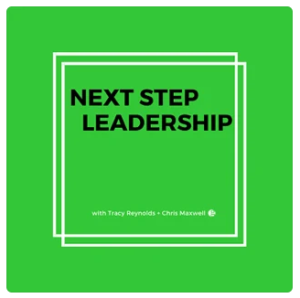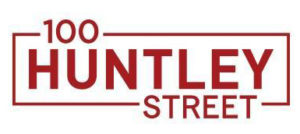Celebrities for Jesus by Katelyn Beaty
This is not an official book review. I’ve written many of those for various magazines and websites.
This is more a confession. My honest reflections about a book—a book I would give a high grade in quality of work and a painfully high grade of importance regarding the information provided.
The word—painfully—is appropriate to include here. Katelyn Beaty’s book Celebrities for Jesus: How Personas, Platforms, and Profits Are Hurting the Church bothered, and bothers, me.
Beaty’s writing, structure, points, questions, and examples offer an appealing argument for her case. She’s concerned. Deeply concerned. But not about a world of others where she can evaluate and condemn everyone else. She wrote about her tribe, her world, her field.
Katelyn Beaty writes Celebrities for Jesus directly at me. And you. And us.
Isn’t that how we, you, I should take it? Not as a confrontation to all those other people. But as a convicting conversation for a not-very-well-known-author-and-pastor like me.
I write books. She wrote about that.
I edit and ghostwrite. She wrote about that.
I seek better book sales, enlarging my audience, and pushing my platform. She wrote about that.
Blog readers and book buyers are my friends, my family. Writing and editing are an important percentage of my needed income. Small sales equal tiny returns. Authors, editors, publishers, and marketing teams have educated, challenged, and pushed me to become better at promoting what I write, about finding my platform. They’ve helped me see how marketing and ministry, when approached with the right motives, can be the same.
We tried to promote my latest book Equilibrium better than any of my previous books. The numbers improved. But has it really made a difference? Have readers applied the 31 suggestions for finding a better balance on life’s uneven surfaces?
I hope so. Yet, I have struggled to market. I can write what I believe is important. I can poetically tell stories. I can interview people and welcome readers into the narratives. But Katelyn Beaty dared me to stare again in the mirror. Instead of just staring at all those other people—you know those people, the well-known ones who have recently fallen, the famous ones who didn’t stay faithful to their demands on others, the already popular ones who don’t create their own stories but pay others to continue developing their image—she invited me to glare at the image on my own screen. She didn’t want me to point at all those out there who aren’t serving like Jesus. She wanted me to critique my own life, and ask, “Why do I do what I do?”
Beaty’s subtitle presents three Ps which are hurting the church: How Personas, Platforms, and Profits Are Hurting the Church. She uses intelligent arguments and painful examples. She writes, “The moment we try to ‘manage’ celebrity, we’ve become like Bilbo Baggins. If we think we can slip on the ring from time to time, using it only when necessary or when it serves a greater good, we miss how it is changing us into someone, or something, else that is terrifying and inhuman. We can’t program our way out of this one. There is no program for addressing the problem of celebrity. There is only a Person. And he, thankfully, knew exactly what it was like to wrestle with the temptation of worldly power.”
I can’t stop thinking about those sentences. Or this one: “Many readers are led to believe that authors are vetted for maturity, credibility, or theological acumen, when sometimes their book deal is the result of a social media team that knew how to crack an algorithm.” And this one: “The leader out of touch with their true self will cling to the spotlight, even to their own and others’ detriment, because it’s the only way they know how to feel love.”
Again, I could point many directions. But I needed to read not to confront someone else. I needed to read ready to point to myself, to receive conviction myself.
Here are two more statements Katelyn Beaty wrote in Celebrities for Jesus that I’ve chosen to keep in my iPhone reminder list:
- “If we want to be at the top, Jesus says, go lower. It’s the opposite of what our idol-making hearts want.”
- “The right kind of fame arises from a life well lived, not a brand well cultivated.”
Though Beaty provided some information I did not previously know, I was already familiar with many of the stories. I had done a few interviews on some; I had helped write and edit a few articles from stories like what she included; I had personally known leaders who changed from humble servants to leaders seeking stardom. My head could easily nod as I turned Beaty’s pages on my iPhone or iPad. I tweeted the quotes and texted them to my friends—giving her credit, of course, so I would not be one of those preachers stealing all my info from others.
But my heart was hurting.
My heart still hurts.
As it should.
Celebrities for Jesus should bother us. Not because it was written by a talented, experienced author who actually wrote the book that has her name on it. Not because it reveals a little more information on those famous leaders we’ve heard and read and followed. Not because we live in days when negative information and harsh accusations are the norm.
No. Celebrities for Jesus should bother us because we are all prone to do wrong. I know I am.
We all lead a little too far away from the Jesus we claim to follow and serve. I know I do.
As I finished reading Celebrities for Jesus I went back and read the poem “Jesus and a platform” from my book embracing now: pain, joy, healing, living.
I wrote the poem as I was processing the Gospel narratives, my heart’s desire for intimacy with Jesus, and my struggle with our modern method of pursuing platforms with “Jesus phrases” rather than pursuing time with Him ourselves.
I’ll include that here, concluding with it, and reminding myself again of the warnings Katelyn Beaty sounded to us all in Celebrities for Jesus.
Jesus and a platform
an agent and a publicist
watched the crowd growing
as they waited on three c.e.o.s
from key publishing companies
to arrive for that day’s encounter.
Jesus, the rumors indicated,
was walking their way.
they struggled to accurately
define His platform.
the poor, those unlikely to invest
in this fascinating endeavor,
continued stepping forward,
walking their way to hear a Leader
appearing interested
in those rejected.
but rejection wasn’t an option
for this agent.
the Jesus rumors triggered
momentum, and now
was time for capturing
the model of promotional power.
crowds continued coming.
editors could be seen
in the audience;
the agent grinned at the publicist.
they cherished this tension
of bids and better bids,
of comparisons and competition,
of the Voice of One
calming storms and
raising the dead and
claiming to be King.
momentum rising.
audience enlarging.
an agreement awaiting.
they felt the mood,
like magical motion.
emotions were obvious
as religious leaders
and political leaders
stared, waiting, watching,
and families brought
sick relatives,
and all tribes seemed to merge:
when have tax collectors, priests,
teachers, prostitutes, and
children all mingled beside
military might
waiting for the sight
of One claiming to be a Savior?
rarely, if ever, at least
not at this level.
the agent smiled more
as the Teacher appeared,
though the smile diminished slightly
as Christ’s appearance seemed not
as luring
as expected.
but smiles returned, eyes winked,
when stories were told
and people applauded or asked
questions which were answered by
more stories while people
and more people
continued arriving.
Jesus didn’t preach long.
Jesus took time to mingle
with a few who would never
purchase His books or
listen to His podcasts;
the agent and publicist
made eye contact again, and
looked toward editors,
seeking to read their minds,
while potential numbers of sales
occupied their thoughts.
it was near time,
time to meet with Jesus.
momentum was high.
numbers were huge.
potential was ideal.
they planned to interview Jesus,
hearing His heart
of future goals and agendas,
of probable crowds and miracles to come,
of new stories to lure buyers,
of platform power,
as editors and c.e.o.s took notes
to begin their offers.
money waited in their minds as
they waited for Jesus.
but He never came.
He left.
Jesus left.
the crowd and Christ’s disciples
were still around.
but He wasn’t.
Jesus, surprising the culture,
was walking away.
He’d walked away,
crying about the throng of hurting ones
and feeling nauseous as His eyes
made contact with
belligerent buyers and sellers.
His mind seemed to
dwell on different goals.
His purpose seemed to
not fit the day’s market.
the agent shook his head.
the editors walked away.
the publicist looked frustrated.
but a lonely lady finally felt loved
for the first time in her life.
an alone Jesus
prayed to His father,
thankful for offering healing
while escaping the momentum
in the marketplace.









